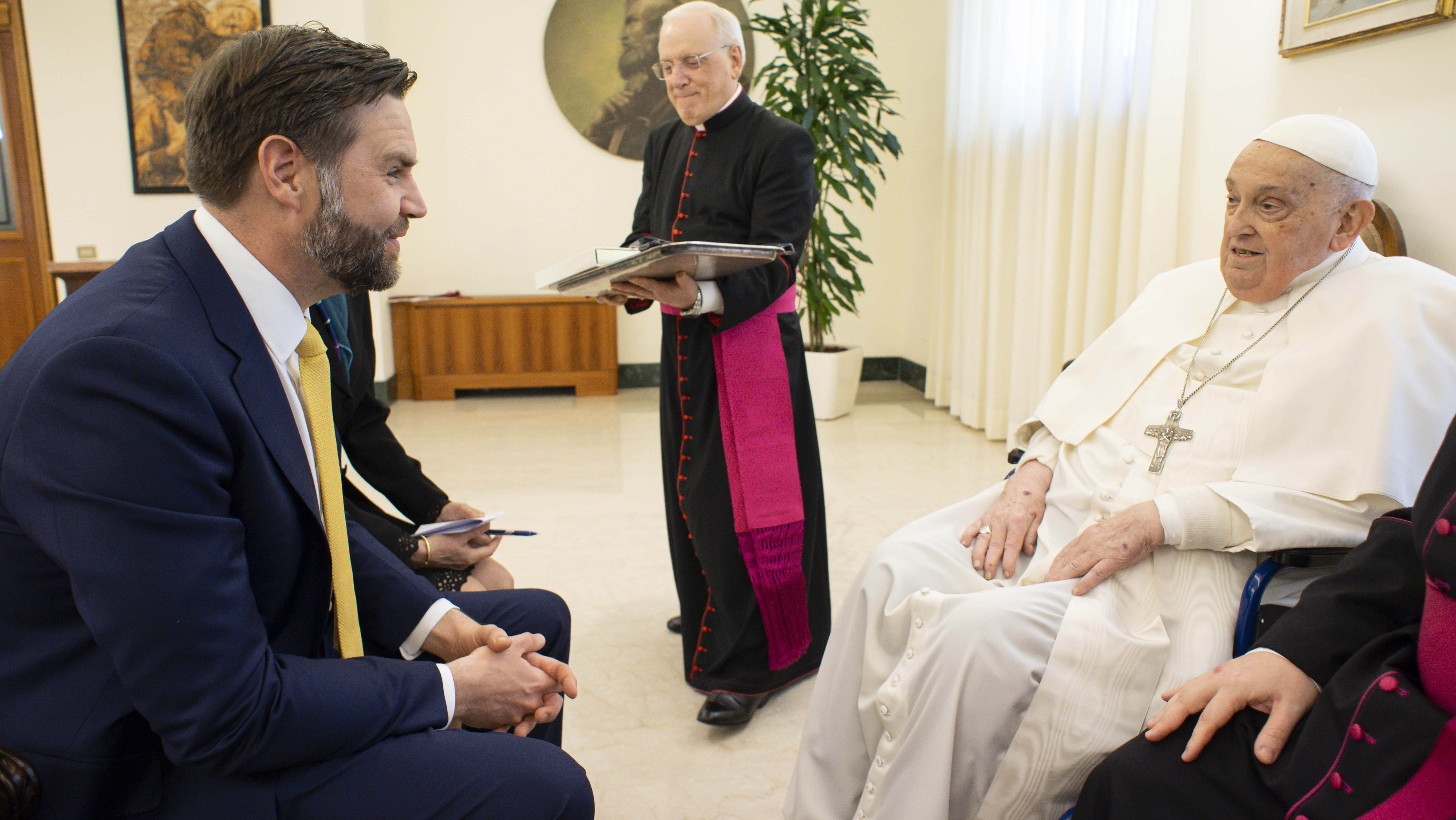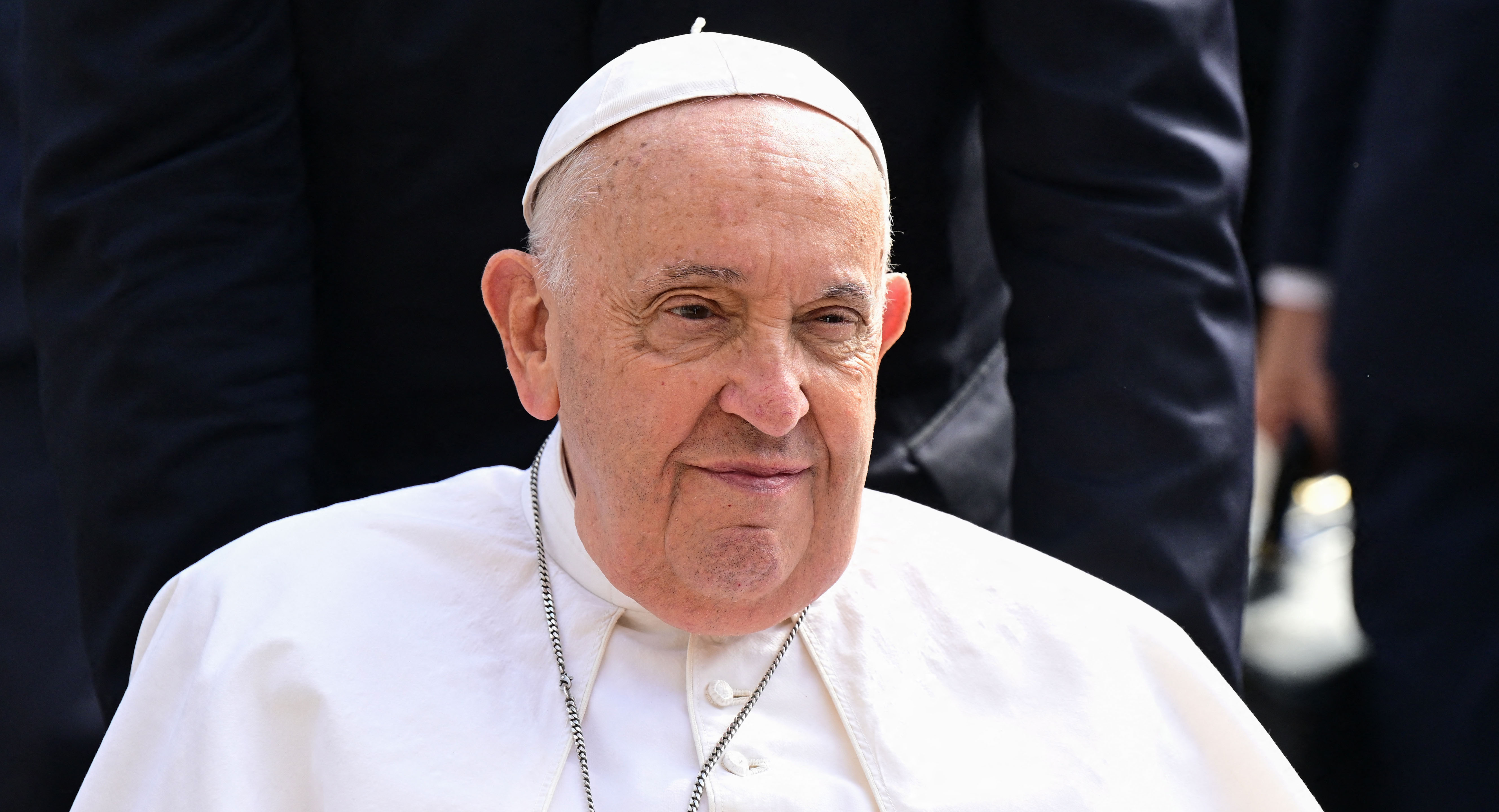JD Vance Meets Pope Francis: Migration Tangle Resolved?
JD Vance and Pope Francis: An Easter Encounter After Migration Tensions
Introduction: A Meeting of Minds, Despite Past Differences
Imagine two figures, seemingly worlds apart, meeting on a day of profound significance. That's precisely what happened when U.S. Vice President JD Vance met with Pope Francis on Easter Sunday. This wasn't just a routine diplomatic courtesy; it was a meeting that took place after some well-documented disagreements, particularly concerning migration policies. Let's delve into the details of this intriguing encounter and what it might signify.
The Vatican Setting: A Place of Power and Humility
The meeting took place within the walls of the Vatican, a place steeped in history, tradition, and immense global influence. Francis, still recovering from a recent bout of pneumonia, received Vance in one of the reception rooms of the Vatican hotel where he resides. This setting alone lends weight to the interaction, highlighting the Pope's commitment despite his health challenges.
A Gesture of Goodwill: Easter Gifts and Warm Wishes
Despite any past disagreements, the meeting began with a gesture of goodwill. Pope Francis, known for his pastoral heart, presented Vance with three large chocolate Easter eggs for his children, who were not present. This act of kindness underscores the Pope's emphasis on family and the spirit of Easter. He also gifted a Vatican tie and rosaries, symbolic tokens of faith and the Vatican's enduring presence.
"Good to See You": A Brief but Meaningful Exchange
"I know you have not been feeling great but it's good to see you in better health," Vance remarked to the Pope. "Thank you for seeing me." This brief exchange, while seemingly simple, speaks volumes. It acknowledges the Pope's health struggles and expresses gratitude for the audience, suggesting a desire for respectful dialogue.
The Back Story: Migration Policy and Diverging Views
But why was this meeting significant in the first place? It stems from previous disagreements, primarily regarding the Trump administration's migration deportation plans. Pope Francis has consistently advocated for the humane treatment of migrants and refugees, a stance that sometimes clashed with certain policies. So, how did these diverging views shape the Easter meeting?
The Pope's Stance on Migration: A Humanitarian Perspective
Pope Francis has made his views on migration abundantly clear. He views it as a complex issue with profound human implications. He constantly reminds the world of the plight of refugees and asylum seekers, often referring to them as brothers and sisters in need. His perspective is deeply rooted in Catholic social teaching, which emphasizes the dignity of every human person.
The Trump Administration's Policies: A Focus on Border Security
The Trump administration, on the other hand, prioritized border security and stricter immigration enforcement. This approach often involved policies that were criticized for their harsh treatment of migrants, particularly at the U.S.-Mexico border. Can you see how these conflicting viewpoints created a potential for tension?
Navigating the Tension: Finding Common Ground
Given these differing perspectives, the Easter Sunday meeting represents an attempt to navigate these tensions and find common ground. It's a reminder that even when disagreements exist, dialogue and respectful engagement are essential. So, what might the leaders have discussed behind closed doors?
The Significance of Easter: A Time for Renewal and Reconciliation
The fact that this meeting took place on Easter Sunday is particularly significant. Easter is a time of renewal, hope, and reconciliation. It symbolizes the triumph over adversity and the promise of a new beginning. Perhaps this timing was intentional, signaling a desire to move beyond past disagreements and forge a more positive relationship.
Vance's Role: Bridging the Divide?
What role might JD Vance be playing in this delicate diplomatic dance? As U.S. Vice President, he represents the current administration and its policies. His willingness to meet with the Pope suggests a desire to maintain open lines of communication and potentially find areas of cooperation, even on contentious issues.
A Side Gate Entrance: Symbolism and Protocol
The fact that Vance's motorcade entered Vatican City through a side gate while Easter Mass was being celebrated in St. Peter's Square is also noteworthy. Was this a matter of protocol, security, or perhaps even a subtle gesture of respect? It’s difficult to say, but the details always matter in such high-profile encounters.
Beyond Politics: The Importance of Human Connection
Ultimately, the meeting between Vance and Pope Francis highlights the importance of human connection, even in the realm of politics and international relations. It’s a reminder that behind policy debates and ideological differences, there are individuals with shared humanity. Can such personal meetings bridge international relations?
The Impact on US-Vatican Relations: A Positive Sign?
What impact will this meeting have on U.S.-Vatican relations? It’s too early to say definitively, but the fact that it occurred at all is a positive sign. It suggests that both sides are committed to maintaining a dialogue and exploring areas of common interest.
Looking Ahead: Continued Dialogue and Collaboration
The future of U.S.-Vatican relations will likely depend on continued dialogue and collaboration. Whether it's addressing global poverty, promoting peace, or tackling climate change, there are many areas where the U.S. and the Vatican can work together. How will future events shape the relationship?
The Larger Implications: A Message of Hope
Perhaps the larger implication of this meeting is a message of hope. It demonstrates that even in a world often divided by conflict and disagreement, dialogue and reconciliation are possible. Isn’t that a message the world desperately needs to hear?
Conclusion: A Small Meeting, a Big Message
In conclusion, the Easter Sunday meeting between JD Vance and Pope Francis, occurring in the wake of disagreements over migration policies, was more than just a simple diplomatic exchange. It was a gesture of goodwill, a sign of potential reconciliation, and a reminder of the importance of human connection, particularly in a world often fractured by conflict. It underscores the power of dialogue and the enduring hope for a better future. Whether this encounter will lead to tangible changes in policy remains to be seen, but it undoubtedly provides a glimmer of optimism for continued engagement and understanding between the United States and the Vatican.
Frequently Asked Questions
Here are some frequently asked questions about the meeting between JD Vance and Pope Francis:
- Why was this meeting considered significant?
The meeting was significant because it occurred after publicly acknowledged disagreements between the Trump administration (during which Vance was politically active) and Pope Francis, particularly on the issue of migration policies.
- What did Pope Francis gift to JD Vance?
Pope Francis gifted Vance three large chocolate Easter eggs for his children, a Vatican tie, and rosaries.
- What was Vance's message to Pope Francis during the meeting?
Vance acknowledged the Pope's recent illness and expressed gratitude for the meeting, saying, "I know you have not been feeling great but it's good to see you in better health. Thank you for seeing me."
- How does the Pope's view on migration differ from that of the Trump administration's?
Pope Francis emphasizes the humane treatment of migrants and refugees, advocating for their dignity and protection. The Trump administration prioritized border security and stricter immigration enforcement, which sometimes led to policies that were criticized for their harshness.
- What potential impact could this meeting have on US-Vatican relations?
The meeting could signal a desire for improved relations and open communication between the US and the Vatican, potentially leading to collaboration on issues of mutual concern such as global poverty, peace, and climate change.

